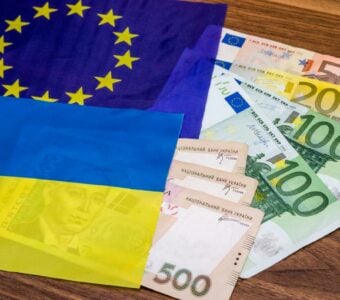Financial Action Task Force on Money Laundering refuses to blacklist Russia

The Financial Action Task Force on Money Laundering (FATF) has released an expanded statement on the risks the Russian Federation poses to the global financial system. It also suspended Russia's membership without introducing further restrictive measures.
The press service of the Ministry of Finance reported this.
The FATF stated that "members of the organization note with concern the potential risks to the international financial system, including Russia's growing financial ties to countries subject to FATF countermeasures, the risks of financing the proliferation of weapons of mass destruction, as well as malicious cyber activity and ransomware attacks. "The FATF also called on all states to remain vigilant due to the risks mentioned above," the statement said.
The Ministry of Finance notes that the updated recommendations do not solve the problem of the Kremlin's constant and deliberate disregard for FATF standards and principles since the suspension of membership a year ago. The Ministry of Finance understands the political challenges of reaching a consensus on further measures. Still, the facts indicate that more needs to be done to counter the Russian Federation's threats to the integrity of the global financial system.
In 2023, Russia intensified its arms trade with Iran and North Korea, which are on the FATF blacklist. Since December, evidence continues to emerge that Russia is purchasing North Korean missiles for use on the battlefield against Ukraine in defiance of UN sanctions. There are new reports that Iran has sent ballistic missiles to the Russian Federation.
Strengthening financial and banking ties with Russia gives North Korea, Iran, and Myanmar, under heavy sanctions, access to the global financial system, posing severe challenges to the FATF and its members.
The ministry notes that at the next plenary meeting, FATF should take stricter restrictive measures to minimize these threats. However, individual countries do not need to wait for FATF processes to lead to further restrictive measures. They could add Russia to their high-risk country lists, requiring increased scrutiny of all Russian-related transactions. They could continue introducing other restrictive measures to prevent the Kremlin from abusing their systems for sanctions evasion, money laundering, and terrorist financing.
At the end of the FATF plenary meeting, Minister of Finance of Ukraine Serhiy Marchenko emphasized:
"We expected stronger action from the FATF amid mounting evidence of violations by Russia. I welcome the FATF's expanded guidance on Russia-related risks, but the corresponding response is to blacklist Russia. Since the suspension of membership a year ago, Russia strengthened ties with blacklisted North Korea and Iran and stepped up malicious cyber activity. The FATF – the organization charged with the security of the global financial system – must live up to its mandate. The lack of tougher restrictive measures is dangerous and plays into the Kremlin's favor, giving it and potentially other perpetrators the green light to continue the gradual destruction of the rules-based international system."
For reference:
The Ministry of Finance of Ukraine and the State Financial Monitoring Service of Ukraine called on the Financial Action Task Force (FATF) to curb Russia's growing efforts to undermine global financial security and strengthen its ties to Iran and North Korea, and bring it into of the blacklist of the organization at the FATF meeting, which took place from February 19 to 23, 2024 in Paris.
The FATF is an intergovernmental organization established by the G7 to develop policies to combat money laundering, the financing of terrorism, and the financing of the proliferation of weapons of mass destruction.
In March and April 2022, the FATF issued a public statement that the Russian invasion of Ukraine was contrary to the FATF's core principles of promoting the global financial system's safety, security, and integrity.
In June 2022, the FATF announced that Russia could no longer hold leadership or advisory positions or participate in decision-making on standard-setting, FATF peer review processes, governance, and membership matters.
In October 2022, the FATF imposed additional restrictions on Russia, including banning it from participating in all current and future projects and meetings of the FATF and its regional partner bodies.
In February 2023, following reports of Russia's arms trade with UN-sanctioned jurisdictions, as well as malicious cyber activity and ongoing incursions into Ukraine, the FATF announced its decision to suspend Russia's membership. In June 2023, the International Anti-Money Laundering Group (FATF) did not include Russia on the "blacklist". The Ministry of Finance of Ukraine disagreed with such a decision.






















































